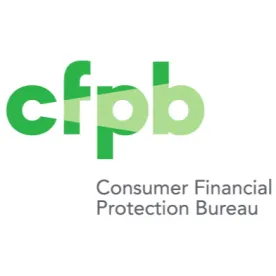The CFPB’s Winter 2019 Supervisory Highlights discusses the Bureau’s examination findings in the areas of automobile loan servicing, deposits, mortgage loan servicing, and remittances. We discussed the Bureau’s auto loan servicing findings in a separate blog post. In this blog post, we focus on the Bureau’s additional findings.
Although issued under Director Kraninger’s leadership, the Winter 2019 Supervisory Highlights covers examinations generally completed between June and November 2018 when Mick Mulvaney was Acting Director. It represents the CFPB’s second Supervisory Highlights covering supervisory activities conducted under Mr. Mulvaney’s leadership. Like the Summer 2019 Supervisory Highlights, the Winter 2019 issue contains the following language in its introduction:
It is important to keep in mind that institutions are subject only to the requirements of relevant laws and regulations. The information contained in Supervisory Highlights is disseminated to help institutions and better understand how the Bureau examines institutions for compliance with those requirements. In addition, the legal violations described in this and previous issues of Supervisory Highlights are based on the particular facts and circumstances reviewed by the Bureau as part of its examinations. A conclusion that a legal violation exists on the facts and circumstances described here may not lead to such a finding under different circumstances.
Also like the Summer 2019 Supervisory Highlights, the new issue’s introduction and the Bureau’s press release about the report does not include any statements touting the amount of restitution payments that resulted from supervisory resolutions or the amounts of consumer remediation or civil money penalties resulting from public enforcement actions connected to recent supervisory activities. (The report does, however, include summaries of the terms of five consent orders entered into by the Bureau, including its settlements with Cash Tyme, a payday retail lender, and Cash Express, a small-dollar lender.)
Key findings include:
Deposits. CFPB examiners found that one or more institutions engaged in deceptive acts or practices by representing that payments made through their online bill-pay service would be debited no sooner than the date selected by the consumer and failing to disclose (or disclose adequately) that the debit might occur earlier than that date when the payee only accepted a paper check. Such paper checks were sent by the institution several days before the consumer’s designated payment date, at the institution’s discretion, and would be debited from the consumer’s account when presented and cashed by the payee. As a result, the debit could have occurred earlier or later than the designated date. In response to the Bureau’s findings, the institutions “undertook a revision” of their consumer-facing materials and “undertook a plan to remediate consumers” who were charged an overdraft fee due to a paper check being negotiated before the consumer’s designated payment date.
Mortgage Servicing. CFPB examiners found:
-
Servicers engaged in unfair practices by charging late fees greater than those permitted by the mortgage notes. In one example, the FHA mortgage note permitted late fees based on a percentage of the overdue principal and interest only. However, the servicer charged late fees based on a percentage of the full periodic payment of principal, interest, taxes, and insurance. The overcharges were the result of programming errors in the servicing platform and “lapses in service provider oversight.” In response to the findings, servicers conducted a review to identify and remediate affected borrowers and changed their policies and procedures “to assist in charging the late fee authorized by the mortgage note.”
-
Servicers engaged in deceptive practices by misrepresenting the conditions for the cancellation of private mortgage insurance (PMI). One or more servicers were found to have told borrowers requesting PMI cancellation that such requests were declined because the borrowers had not reached the 80% loan to value requirement for cancellation. While the relevant amortization schedules did not yet reach 80% LTV, the borrowers had in fact reached 80% LTV by making additional principal curtailment payments. Although the borrowers had not satisfied additional conditions necessary for PMI cancellation, the servicers did not identify those conditions as the reasons for denying the borrowers’ cancellation requests. In response to the Bureau’s findings, the servicers “changed templates, as well as policies and procedures, to ensure that PMI cancellation notices state accurate denial reasons.”
-
One or more servicers were found not to have satisfied the Regulation X requirement for a servicer to exercise “reasonable diligence” in obtaining documents and information to complete a loss mitigation application. The servicers offered short-term payment forbearance programs during collection calls to delinquent borrowers who had expressed interest in loss mitigation and submitted financial information that the servicer would consider in evaluating them for loss mitigation. However, the servicers had not notified the borrowers that their forbearance offers were based on an incomplete application evaluation and did not contact the borrowers, near the end of the forbearance period, to inquire whether they wanted to complete the applications to receive a full loss mitigation evaluation. In response to the Bureau’s findings, the servicers “used enhanced processes, such as a centralized queue, to track borrowers receiving short-term forbearance programs and subsequently notify them that additional loss mitigation options may be available and that they could apply for such options over the phone or in writing.”
-
In examinations reviewing servicing of Home Equity Conversion Mortgage loans, examiners criticized the notices sent by servicers to successors of deceased borrowers informing them that they could qualify for an extension of time to delay or avoid foreclosure to enable them to purchase or market the property and directing them to return a form indicating their intentions for the property. While the notices listed several documents that might be needed to evaluate whether the successor qualified for an extension, it did not direct them to submit such documents within a certain timeframe to be eligible for an extension. The Bureau found that the servicers had assessed foreclosure fees, and in some instances had foreclosed on properties, where successors had returned the form indicating that they intended to purchase or market the property but had not returned the documents necessary for an evaluation. While examiners did not find this to be a legal violation, they observed that it could pose a risk of a deceptive practice by creating an impression that the statement of intent was all that was needed to delay foreclosure. In response to the Bureau’s findings, the servicers “planned to improve communications with successors, including specifying the documents successors needed for an extension and the relevant deadlines.”
Remittances. CFPB examiners found that one or more supervised entities violated the remittance rule’s error resolution requirements by failing to refund fees and, as allowed by law, taxes to consumers whose remitted funds were made available to designated recipients later than the date of availability stated in the entity’s remittance disclosures and the delay was not due to any of the rule’s excepted events. The CFPB cited the violations, even though the delays at issue were due to a mistake by a non-agent foreign payer institution. The CFPB reminded companies that “neither the relationship between a remittance transfer provider and the institution disbursing the funds to the designated recipient, nor the particular entity that is at fault for the delayed receipt of funds, is relevant to whether the remittance transfer provider must refund fees and taxes to the consumer.” In response to the Bureau’s findings, the entities are making the mandated refunds.




 />i
/>i

